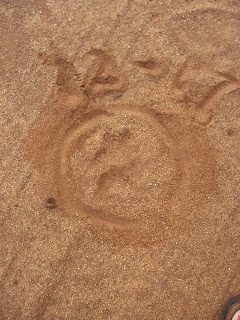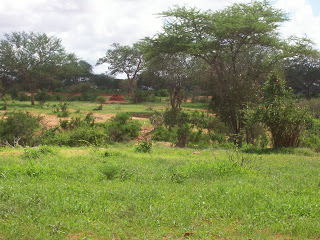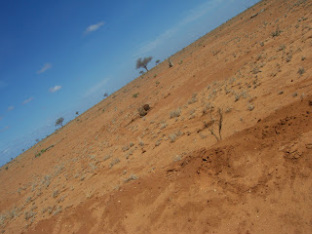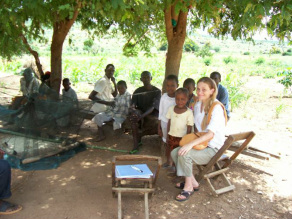
It has been eventful in the field, during recent months, so its time for an current update. Since October, I have mainly focused project activities on identifying a number of individual cheetahs in the southern sector of Tsavo East. This was much easier before the rains, during dry season. Now, during December, as with the later part of November, I am still able to monitor known cheetahs and even find new individuals, though with much greater effort and a combination of techniques.
In conjunction with the direct sightings, camera traps are being placed specific locations where I have unfortunately lost track of a few individual cheetahs which I had last monitored in May. My fear is that they may have come into confrontation with pastoralists who graze livestock within the park or perhaps they even wandered outside the park onto community land. Both circumstances could pose dire consequences for these cheetahs. By placing trail cameras in areas where they were frequently seen and followed, the project will potentially have better idea if they remain in this location or even if any new cheetahs are occupying the area.
Irresponsible tour driver behavior in Tsavo has become a serious problem where cheetah protection and conservation are concerned. I have personally witnessed and others have also reported incidents to me, drivers going off-road in the park, often several hundred meters, driving straight up to cheetahs who are often resting under trees for shade (please refer to the photo below, which gives just one example). The cheetahs are always frightened away by this unethical behavior and I have even lost track of individuals of which I am monitoring, all due to a driver's need for a 'big tip'! TCP is working with on-ground KWS rangers to combat this issue, for the welfare of the cheetah. Violators will be restricted from access into the park.
Community visits are an essential component of cheetah conservation. The project is always willing to provide livestock husbandry improvement and education on predator behavior to local residents who reach out. Although a recent culprit turned out to be a leopard instead of a cheetah, the problem appears to be solved (at least, for now!) and any further incidents will also be attended to..


